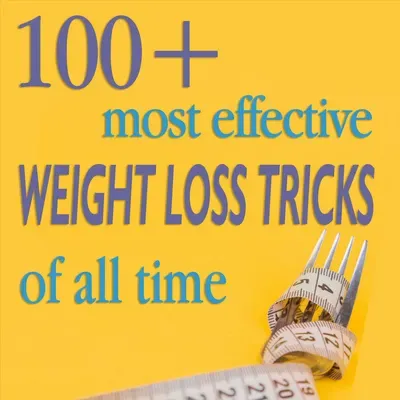
1. BODY SPEECH: Get back in touch with your body's natural hunger signals.
100+ BEST WEIGHT LOSS TRICKS OF ALL TIME
Body speech
Healthy young children are tuned in to their bodies. They know when they are really hungry, they know which foods will fulfil their nutritional needs, and they know when they’ve had enough to eat.
They understood their own body-speech.
You’re born with an innate ability to understand body-speech, but external influences can make you lose your sensitivity to it. Why do so many of us lose touch with this important, innate knowledge as we grow up? There could be several reasons, such as:
• Your parents/caregivers might have believed it was their responsibility to cram as much food into you as possible, possibly resorting to cajoling, bribery or even punishment.
• You may not have been offered a wide range of fresh, nutrient dense foods to choose from.
• You might have been taught that sweet foods such as candy and desserts are “treats” or “rewards”, which makes Calorie dense, fatty, sugary foods seem more desirable.
• You were probably subjected to a barrage of junk food advertising on billboards, radio and TV.
• You were probably exposed to the brightly colored, alluring pictures on the wrappers of junk foods.
• You might have learned to eat when you’re not hungry, because it’s officially “meal-time” or because it’s a habit.
• You might have started eating “junk” food because of peer pressure.
• Dieting can interfere with your body-speech feedback mechanisms.
All of these messages, and more, can subvert your body’s natural instincts. By the time you became an adult you may have completely
lost touch with them, and forgotten how to listen to your body.
Getting back in touch with your body-speech
To counteract this:
• Become aware of your own natural biorhythms, your “body-clock”.
• Become aware of what makes you want food—your blood sugar levels, your emotions, seeing or smelling food, your food habits, whether you eat according to your appetite’s demands, or according to triggers of time and place.
• Don’t eat when you don’t really want to eat, just because it’s breakfast time or lunchtime or dinnertime, or someone offers food.
• Don’t allow your real hunger to become desperate ravenousness. Always have next meal planned and ready to be accessed quickly and easily. Keep emergency "100+" snacks on hand.
• Be aware of all the food you eat. Concentrate on it and make eating a special occasion. Never, for example, eat while walking around, reading or watching a movie!